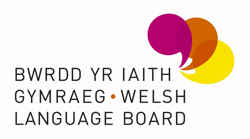
The Department for Culture, Media and Sport (DCMS) is a department of His Majesty's Government, with responsibility for culture and sport in England, and some aspects of the media throughout the UK, such as broadcasting.

Referendums in the United Kingdom are occasionally held at a national, regional or local level. Historically, national referendums are rare due to the long-standing principle of parliamentary sovereignty. There is no constitutional requirement to hold a national referendum for any purpose or on any issue however the UK Parliament is free to legislate through an Act of Parliament for a referendum to be held on any question at any time.
Regional policy is the sum of a series of policies formulated according to regional differences to coordinate regional relations and regional macro operation mechanism, which affects regional development at the macro level. It includes regional economic policy, regional social policy, regional environmental policy, regional political policy, regional cultural policy, etc.Regional policy aims to improve economic conditions in regions of relative disadvantage, either within a nation or within a supranational grouping such as the European Union. Additionally, a regional policy may try to address high levels of unemployment and lower-than-average per capita incomes. Its main tool is public investment.

The Welsh Language Board was a statutory body set up by Her Majesty's Government under the Welsh Language Act 1993. It was an Assembly Sponsored Public Body. It began its life under John Walter Jones, and its last chief executive was Meirion Prys Jones, with Meri Huws acting as chair.
State aid in the European Union is the name given to a subsidy or any other aid provided by a government that distorts competition. Under European Union competition law, the term has a legal meaning, being any measure that demonstrates any of the characteristics in Article 107 of the Treaty on the Functioning of the European Union, in that if it distorts competition or the free market, it is classified by the European Union as illegal state aid. Measures that fall within the definition of state aid are considered unlawful unless provided under an exemption or notified by the European Commission. In 2019, the EU member states provided state aid corresponding to 0.81% of the bloc's GDP.

A grant is a fund given by a person or organization, often a public body, charitable foundation, a specialised grant-making institution, or in some cases a business with a corporate social responsibility mission, to an individual or another entity, usually, a non-profit organisation, sometimes a business or a local government body, for a specific purpose linked to public benefit. Unlike loans, grants are not intended to be paid back. Examples include student grants, research grants, the Sovereign Grant paid by the UK Treasury to the monarch, and some European Regional Development Fund payments in the European Union.

Politics in Wales forms a distinctive polity in the wider politics of the United Kingdom, with Wales as one of the four constituent countries of the United Kingdom (UK).

The economy of Wales is part of the wider economy of the United Kingdom, and encompasses the production and consumption of goods, services and the supply of money in Wales.
On 26 June 2003, EU farm ministers adopted a fundamental reform of the Common Agricultural Policy (CAP) and introduced a new Single Payment Scheme for direct subsidy payments to landowners.

Professor Dylan Jones-Evans OBE PhD FRSA was born in Bangor, Gwynedd and brought up in Pwllheli on the Llyn Peninsula. He is currently Assistant Pro-Vice-Chancellor (Enterprise) and the chair in entrepreneurship at the University of South Wales. He is visiting professor of entrepreneurship at the University of Turku in Finland, newspaper columnist and the creator of the Wales Fast Growth 50, an annual barometer of entrepreneurial firms in Wales.

Welsh independence is the political movement advocating for Wales to become a sovereign state, independent from the United Kingdom.

Agriculture in the United Kingdom uses 69% of the country's land area, employs 1% of its workforce and contributes 0.5% of its gross value added. The UK currently produces about 60% of its domestic food consumption.

The regions of England, formerly known as the government office regions, are the highest tier of sub-national division in England. They were established in 1994 and follow the 1974–96 county borders. They are a continuation of the former 1940s standard regions which followed the 1889–1974 administrative county borders. Between 1994 and 2011, all nine regions had partly devolved functions; they no longer fulfil this role, continuing to be used for limited statistical purposes.

The United Kingdom, being in the British Isles, is ideal for tree growth, thanks to its mild winters, plentiful rainfall, fertile soil and hill-sheltered topography. In the absence of people, much of Great Britain would be covered with mature oaks, except for Scotland. Although conditions for forestry are good, trees do face damage threats arising from fungi, parasites and pests. The development of afforestation and the production and supply of timber in Wales come under Natural Resources Wales, as set out in the Forestry Act 1967.

In the United Kingdom, devolution is the Parliament of the United Kingdom's statutory granting of a greater level of self-government to the Scottish Parliament, the Senedd, the Northern Ireland Assembly and the London Assembly and to their associated executive bodies: the Scottish Government, the Welsh Government, the Northern Ireland Executive and in England, the Greater London Authority and combined authorities.

The 2016 United Kingdom European Union membership referendum took place in the United Kingdom and Gibraltar on 23 June 2016. Membership of the European Union had been a topic of political debate in the United Kingdom since the country joined the European Communities in 1973. This referendum was conducted very differently from the European Communities membership referendum in 1975; a more localised and regionalised counting procedure was used, and the ballot was overseen by the Electoral Commission, a public body which did not exist at the time of the first vote. This article lists, by voting area for Great Britain and Gibraltar and by parliamentary constituency for Northern Ireland, all the results of the referendum, each ordered into national and regional sections.

Federalism in the United Kingdom aims at constitutional reform to achieve a federal UK or a British federation, where there is a division of legislative powers between two or more levels of government, so that sovereignty is decentralised between a federal government and autonomous governments in a federal system.

The United Kingdom Internal Market Act 2020 is an act of the Parliament of the United Kingdom passed in December 2020. Its purpose is to prevent internal trade barriers within the UK, and to restrict the legislative powers of the devolved administrations in economic matters. It is one of several pieces of legislation concerning trade that were passed following the European Union membership referendum, as after Brexit the UK is no longer subject to EU law. It introduces principles of mutual recognition and non-discrimination into UK trade law.
The objectives of the international relations of Wales are the promotion of Wales and Welsh interests abroad, the development of the Welsh economy and the positioning of Wales as a globally-responsible nation. Responsibility for Welsh international relations lies with the First Minister of Wales, as of 2023 Mark Drakeford, who took over the international relations portfolio in 2020. Relations are primarily undertaken through a network of 21 international offices operated by the Welsh Government, with representation in London, Belgium, Canada, China, Ireland, France, Germany, India, Japan, Qatar, the United Arab Emirates and in five offices across the United States. Additionally the Welsh government has signed agreements or memoranda of understanding with other countries and regions including the Basque Country and the Ōita Prefecture in Japan. This permanent representation is supplemented by overseas visits undertaken by the First Minister, and other officials, often timed to coincide with Saint David's Day, the feast day of the Welsh patron saint, and by an annual focus on a specific nation, "Wales in Germany" in 2021, "Wales in Canada" in 2022 and "Wales in France" in 2023.













